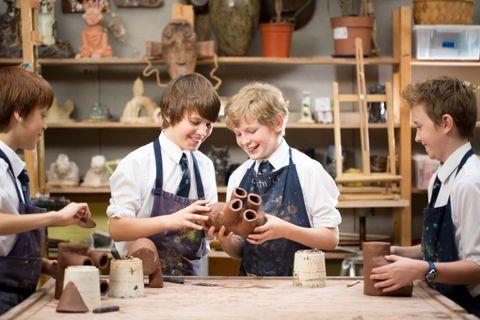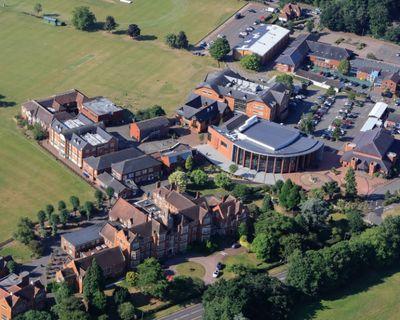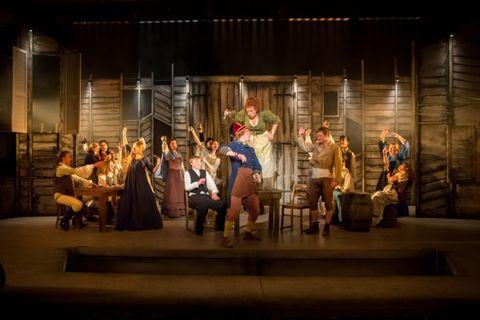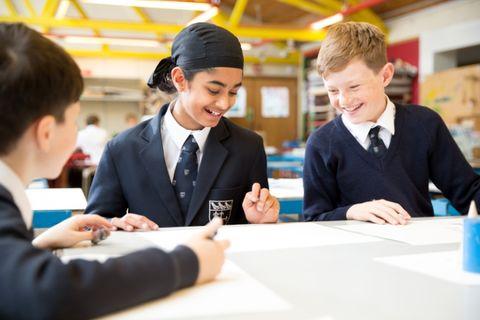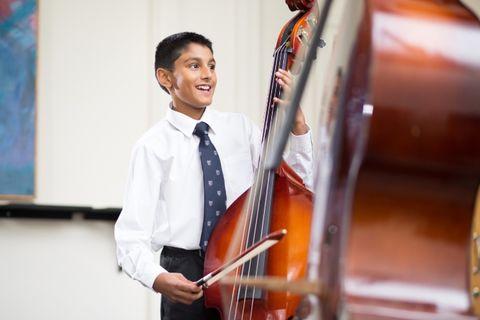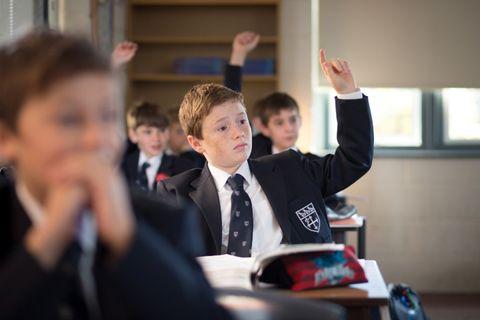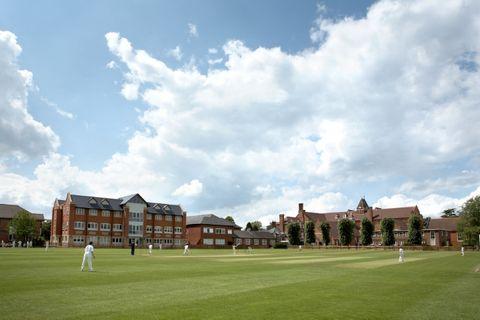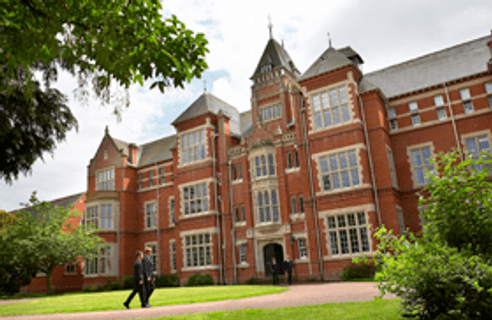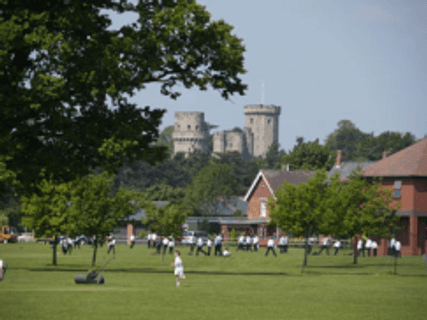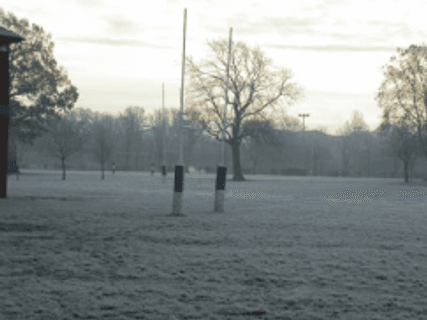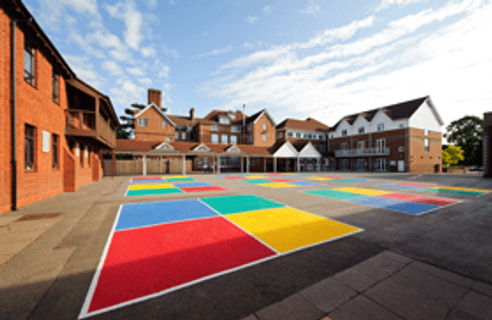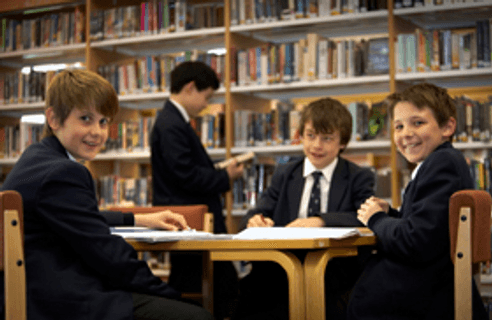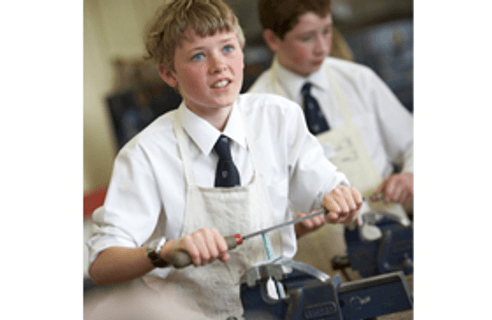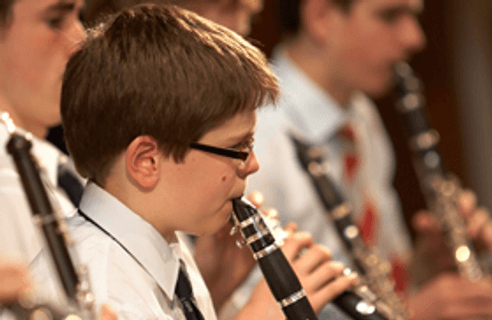Casual Cover Teacher Years 3-6
Warwick School
Warwickshire
- Expired
- Job type:
- Part Time, Supply
- Apply by:
- 10 December 2021
Job overview
The Junior School
Warwick Junior School offers an outstanding education for boys aged between 7-11. Warwick Junior School is part of the Warwick Foundation. Numbers at the school are extremely healthy, with many classes being full and waiting lists in most years. The school has a long-standing academic reputation but is also known for its very friendly, family atmosphere, where boys can enjoy their childhood, develop a love of learning and become confident, creative and independent young people. The school looks to develop the talent of each and every boy and the successful applicant for this post will be able to play a significant role in ensuring that this continues to be a key feature of the school.
There are three forms in each year group. Warwick Junior School boys are taught in the following maximum class sizes: Year 3 (20), Year 4 (22), Year 5 (24), Year 6 (24). Boys in Year 3 are often supported by the three teaching assistants in the Junior School. Some teaching assistant support is also provided in Year 4.
A decade ago the Junior School underwent an extension and refurbishment programme providing excellent facilities which include an assembly hall, fully equipped science and technology teaching rooms, a purpose built art room, two computer suites and a well-stocked library with computers. Although part of Warwick School, the Junior School has its own premises, but benefits from the use of extensive sports, swimming, drama and music facilities at Warwick School.
Boys in Years 3 and 4 are part of the Lower School. The majority of lessons are taught by the class teacher with specialists providing lessons in French, IT, PE, DT, Art and Music. As boys progress into Year 5 and Year 6, they become more ‘nomadic’ as they visit specialists for English, Maths, Science and Humanities.
All boys benefit from the outstanding sporting, musical and co-curricular opportunities in the Junior School. There are approximately 60 different clubs and activities on offer each week.
Duties as directed by the Head, include:
ACADEMIC
a) To teach the weekly/daily programmes of work for all timetabled lessons, using a variety of delivery methods to stimulate learning, based on the relevant schemes of work, working closely with colleagues to ensure continuity, challenge and progression.
b) To ensure that all lessons and homework are structured to create opportunities for the extension of more able pupils and support for children in need of learning support.
c) To be able to set clear targets, based on prior attainment, for pupils’ learning;
d) To liaise with and manage the work of teaching assistants, as required.
e) To provide a stimulating classroom environment for learning, where resources can be accessed appropriately by all pupils.
f) To assess and record the development of pupils, using the information where necessary to improve specific aspects of teaching and learning.
g) To liaise and consult with staff, including the Learning Support team, regarding work and general progress of pupils.
PASTORAL
a) The Form Teacher is responsible for the pastoral care and well-being of all children within the school
b) To share responsibility for all children and their general discipline within the school following the school’s Behaviour and Anti-Bullying policies.
c) To be aware of the individual strengths, personalities and needs of each pupil in the form and teaching groups.
d) To monitor and provide appropriate advice and guidance on individual pupils’ progress in respect to attendance, progress and behaviour.
e) To register pupils in accordance with the Attendance Procedures.
OTHER
a) To ensure that all school and Foundation policies and procedures are adhered to.
b) To work as a member of a team, positively and enthusiastically contributing to effective working relationships within the school.
c) To participate in meetings which relate to the day-to-day running and the ongoing development of the school;
d) To support and contribute to initiatives introduced by the school’s leadership
e) To attend school assemblies.
f) To report safety issues to the relevant authorities within the school and/or Foundation and to undertake risk assessments and training where necessary.
g) To undertake cover supervisory duties as stated in the “Staff Duty Rota”.
Person Specification - Key Stage 2 Form Teacher
Area Essential Desirable Method of Testing
Qualifications
• Good honours degree (essential)
• Qualified Teacher Status (essential)
• Relevant and recent in-service training (desirable)
Experience
• Relevant and recent teaching experience with excellent record of form teaching (essential)
• Evidence of innovative and modern teaching practice in Key Stage 2 (essential)
• Experience of working with highly motivated and able pupils (essential)
• Teaching experience in a variety of schools (desirable)
Special Knowledge
• Excellent professional knowledge and understanding of issues surrounding KS2 teaching (essential)
• Up to date with pedagogical developments in KS2 teaching (essential)
• Knowledge of extending more able children and/or supporting less able (essential)
• An understanding of how boys learn and effectively apply their learning (essential)
• Particular curriculum strengths or interests (please mention in application) (desirable)
• Knowledge gained from having taught in a variety of settings/schools (desirable)
Particular Skills, Aptitudes and Personal Qualities
• High standard of written and spoken English (essential)
• A creative and imaginative approach to teaching and learning demonstrating a high level of classroom teaching skill (essential)
• Ability to work as part of a team (essential)
• Excellent interpersonal, organisational and communication skills (essential)
• Kind, calm, reassuring, reliable (essential)
• Boundless energy & enthusiasm for teaching boys(essential)
• Positive attitude to use of authority and maintaining class discipline (essential)
• Ability to deal sensitively with children/parents (essential)
• Sympathy with and ability to maintain the ethos of the school (essential)
• High level ICT skills (essential)
• ‘Can do’ attitude (essential)
Other Requirements to the Role
• Suitable to work with children (essential)
• Commitment to safeguarding principles and practice (essential)
• DBS check and references that are satisfactory to the Foundation (essential)
• Able to be flexible with working hours should the need arise for extra work on an ad hoc basis (desirable)
Attached documents
About Warwick School
The oldest boys' school in England, Warwick School has been in continuous existence at least from the days of King Edward the Confessor (reigned 1042-1066) when the fledgling town possessed a school under the tutelage of All Saints' Church. The earliest appearance of Warwick Town in history is in the Anglo-Saxon Chronicle under the year 914, and this has long been taken as the date of the foundation of Warwick School.
Very little documentary evidence exists before 1545, when King Henry VIII established, i.e. presumably re-founded, the "King's New School of Warwick." The premises were then in the Guild Hall which then became part of the Lord Leycester Hospital.
Between 1697 and 1879 the school was run in the old college of the Vicars Choral in St Mary's churchyard, and was predominantly a day school. The education, typically for the time, emphasised the classics above all.
The move to the open fields site south of the River Avon eventually brought about a steady rise in numbers – in 1878 there were 44 boys in the school, and by 1906, 110. In that year a merger with the Middle School in Warwick esulted in the modern name of Warwick School being adopted, rather than The King’s School.
Numbers in the 1930s reached 350, with 18 staff and a sixth form of about 40.
By the 1960s there were over 750 pupils and 45 staff. This expansion in numbers, together with a broadening of the curriculum, produced a continuous demand for new buildings. The original Science Block of 1905 survives in its third guise as the modern music department. More modern buildings included the Memorial Gymnasium, 1957, the Guy Nelson Hall and Languages Block of the early 1970s.
Over the past 25 years significant investment has been spent on improving the facilities and accommodating an ever increasing school roll. A new sports pavilion, theatre, a state of the art science building and teaching block have provided new and spacious accommodation and a new school hall is nearing completion.
In 2014 the school celebrated its 1100th anniversary, which provided a wonderful opportunity to celebrate the history and success of the school with all of its dedicated staff and governors, pupils and parents, as well as strengthening our links with the wider community.
The reputation of Warwick School in the local area and beyond has led to the recruitment of excellent staff and pupils and this in turn has resulted in record exam results, outstanding achievements in music, drama and sport and an ever growing programme of extra-curricular activities. The school prides itself on its strong sense of identity and its ability to provide an outstanding all-round education to a wide mix of boys.
Please note that you are wholly responsible for fact checking in respect of the information provided by schools. Please also check for the latest visa and work permit requirements that may apply. Tes is not responsible for the content of advertisements or the policies adopted by advertising schools. Tes asks that all schools follow Tes' Fair Recruitment Policy.


